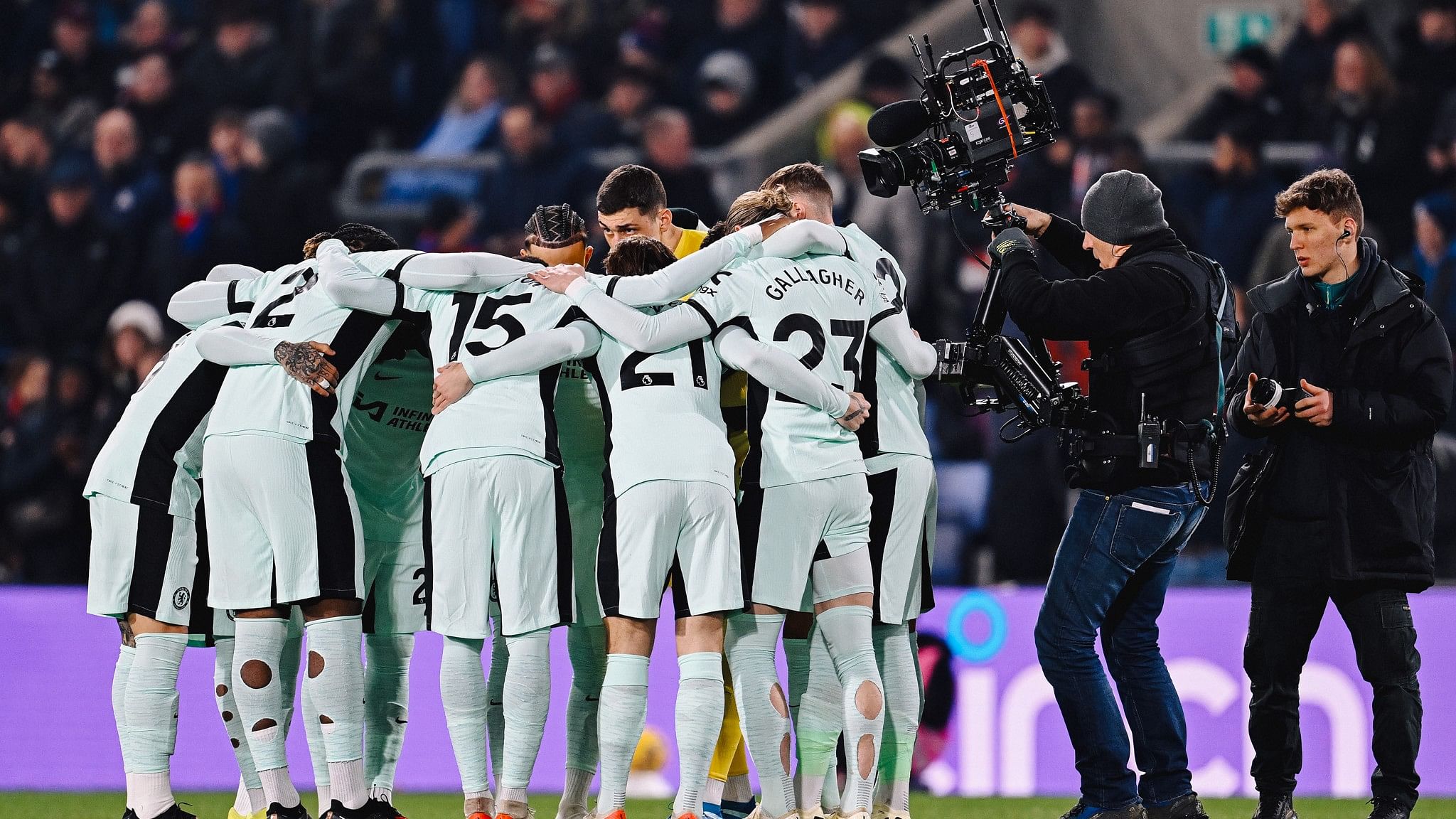
A photo of Chelsea FC players in a huddle.
Credit: X/@ChelseaFC
The Todd Boehly era has been one disaster after another for the blue side of London. From sacking their Champions League winning manager, to spending absolutely recklessly in the transfer market, yet getting no results, Chelsea are a complete mess.
And it seems to be getting worse, according to a report on The Athletic.
Should Chelsea win the Carabao Cup final by beating Liverpool at Wembley, they will qualify for the Europa Conference League next season.
While that might be taken as a sign of progress and serve as the first tangible reward for the new owners, who invested more than £1 billion in transfers and managers, it also entails much bigger financial problems than what the Blues already have.
At present, the club is solely obligated to adhere to the Premier League's profit and sustainability regulations (PSR), permitting losses of up to £105 million within a three-year timeframe.
Chelsea managed to meet these requirements, albeit by a slim margin, for the monitoring period ending on June 30, 2023, and asserted their commitment to complying with the regulations for the 2023-24 period.
If Chelsea win the Carabao Cup, they will qualify for the Europa Conference League, and given their league position, it's unlikely they'll qualify for the more higher-ranked European competitions, namely the Europa League and the Champions League.
All teams participating in European competitions must follow UEFA's club licensing and financial sustainability regulations (FSR), which replaced financial fair play (FFP) in 2022. Here, clubs can only lose up to £68.5m in a particular monitoring period. UEFA also ratified the decision to limit player amortization to five years.
Given Chelsea's outlandish spending (e.g. £400m spent just in the summer of 2023) and lack of revenue to match it, Chelsea are in danger of breaking the PL PSR rules if they don't gather enough numbers in their balance sheets through sales.
The amortised cost of just the 2023 summer arrivals for Chelsea is at £59.4m in the PSR calculations, which is within the limit, but not when all the other players are included. When the five-year amortisation cap is applied to comply with UEFA rules, this figure rises significantly to £80.9m.
Qualifying for Europe and returning to UEFA’s financial jurisdiction would lower the maximum amount Chelsea could lose by £36.5m, while increasing the amortised cost of their transfer spending in the summer of 2023 by £21.5m.
All this points to the West Londoners breaching UEFA rules if they qualify and don't work very hard quickly to hit the numbers to avoid getting penalised by UEFA. The financial estimations point towards them already breaching the high limit of the Premier League.
Playing the Conference League will force them to comply with the lower UEFA limit, and also increase costs through players’ bonuses for qualifying for the competition, transport, accommodation and other costs.
The Blues' only way of balancing the numbers, since they won't make enough through their PL position, Carabao Cup win (if they do) and other sponsors, is to sell players, especially academy players who rake in pure profit.
However, given their situation, it puts them at a disadvantage at the negotiating table when selling their players. An example of this played out in the summer of 2023, when Richarlison was sold for a lower fee than his market value because Everton needed to comply with PL PSR rules.
The Blues already have very little wiggle room when it comes to negotiating player sales. European qualification would make that task much harder. So, what's the way forward?
Four and a half years ago, AC Milan, after breaching FFP regulations in three seasons, negotiated a deal with UEFA to undergo a one-year ban from European competitions, instead of the usual two-year penalty. They missed out on one year of Europa League football but returned for the 2020-21 season and eventually qualified for the 2021-22 Champions League.
Chelsea could do something similar. Because, if they are exceeding the UEFA limit, the question for them becomes: ‘Do we want to go and play in the Conference League next season?’. They won’t make any significant money from it overall and will, in fact, be hampered when trying to sell their players.
Thus, as things stand, Chelsea find themselves facing a very complicated and bizzare. That said, they wouldn't want to miss out on a trophy either, especially given their dismal performances over the past two seasons that fans have had to endure.
In a sense, a win at the Carabao Cup final would be a massive boost for both Chelsea players and fans alike, but it would also open the door to a problem that might become tricky to navigate for the West London club.